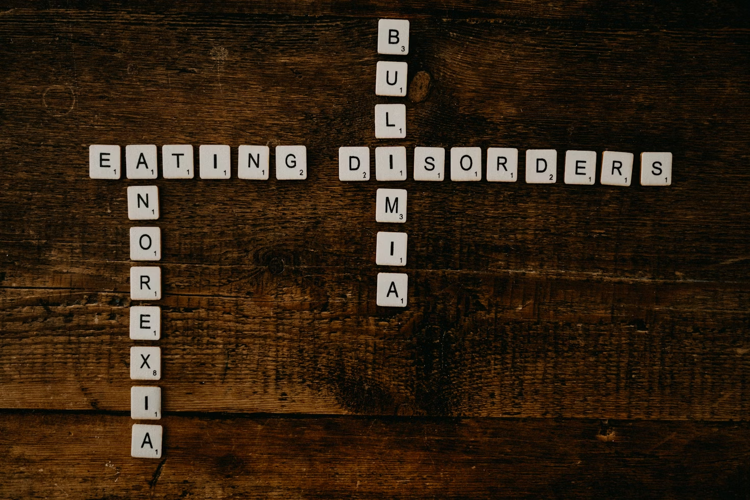Eating issues can deeply affect a person’s relationship with food, body image, and emotional health. They often develop gradually, starting with small changes in eating patterns that grow into complex habits and mental struggles. These challenges can impact anyone, regardless of age, gender, or background. Understanding the roots of eating issues and knowing how to respond to them can open a path toward balance and healing. By addressing these challenges with compassion and guidance, individuals can regain control over their thoughts and behaviors surrounding food and self-image.

Understanding Eating Disorders and Treatment Options
Eating disorders often emerge from a mix of emotional distress, unrealistic body standards, and personal or environmental triggers. Recovery begins with recognizing that these disorders are not about vanity or lack of willpower but are deeply rooted psychological conditions that deserve professional care.
Comprehensive treatment usually includes therapy, nutritional support, and sometimes medical supervision. Midway through this journey, many people discover that specialized programs in centers such as Oasis Eating Recovery can provide structured and compassionate care tailored to individual needs, making recovery more manageable and less isolating. Such centers focus on restoring both physical health and emotional balance, creating a foundation for long-term healing.
The Role of Mental Health in Eating Issues
Mental health plays a central role in the development and persistence of eating problems. Anxiety, depression, trauma, or obsessive-compulsive tendencies can all influence eating behaviors. Some individuals use food to cope with emotional pain, while others restrict intake as a way to feel control in overwhelming situations.
Addressing the psychological aspects through therapy allows individuals to understand their triggers, reshape negative self-talk, and form a healthier self-image. Cognitive-behavioral therapy and dialectical behavior therapy are two approaches often used to uncover emotional roots and teach practical coping skills. Building mental resilience can lessen the power of disordered thoughts, allowing genuine recovery to take place.
Nutrition and Relearning Healthy Eating Habits

Reconnecting with food in a healthy, balanced way takes time, patience, and trust. Many individuals recovering from eating disorders or disordered eating patterns have spent years developing rigid rules, guilt, or fear around food. The process of unlearning these beliefs often begins with the guidance of a registered dietitian who understands both the physical and emotional dimensions of eating recovery.
Nutrition counseling offers a safe space to explore one’s relationship with food, identify harmful patterns, and introduce gradual changes that promote healing rather than restriction. Through education and empathy, individuals can begin to view food not as an enemy, but as nourishment that supports both physical strength and mental clarity.
Meal planning becomes a powerful tool in this stage, helping to remove uncertainty and anxiety from daily eating decisions. Structured meal schedules encourage consistency, which helps stabilize blood sugar levels and restore normal hunger cues that may have been suppressed by disordered habits. For those recovering from restrictive eating, this process can initially feel uncomfortable, as the body relearns to trust consistent nourishment. Over time, these routines foster a renewed sense of safety and predictability. Binge-recovery work also involves reestablishing regular eating intervals and challenging the guilt or shame tied to eating certain foods. The goal is to create balance rather than perfection.
Building Support Systems and Finding Connection
Healing from eating issues often feels overwhelming, but having a strong support system can make a tremendous difference in recovery. Isolation tends to deepen the hold of eating disorders, as secrecy and shame often prevent people from seeking help. Building meaningful connections with others creates a sense of safety and understanding that helps break that cycle. Family members, friends, therapists, and recovery communities all play a part in creating a network of encouragement and accountability.
When loved ones learn how to respond with empathy rather than judgment, they can become active participants in recovery, offering reassurance through both setbacks and achievements. Open communication is one of the most powerful tools in this process. Many individuals find it difficult to express their struggles openly, fearing rejection or misunderstanding. Sharing feelings with someone who listens without criticism helps release the emotional burden that often drives disordered behaviors.
Support groups, whether in person or virtual, provide a space where individuals can connect with others who have faced similar experiences. This shared understanding can be profoundly healing, as it reminds each person that they are not alone and that recovery is possible. Group therapy sessions also encourage accountability, providing structure and perspective while teaching valuable coping techniques.
The Influence of Social Media and Culture
Modern culture often glamorizes unrealistic body types, fueling unhealthy comparisons and distorted self-perception. Constant exposure to filtered images and diet trends can lead to pressure and anxiety surrounding appearance. Reducing time spent on social platforms or curating feeds to include body-positive content can help lessen these effects.
Education around media literacy is another powerful tool; it teaches individuals to question harmful messages about beauty and health. Creating distance from toxic online influences encourages more authentic self-acceptance. This shift allows room for individuality, confidence, and appreciation of one’s unique body.
Creating Sustainable Recovery and Long-Term Balance
Achieving lasting recovery from eating disorders requires a continuous commitment to personal growth and emotional awareness. The journey does not end when treatment concludes; it transforms into a lifelong process of maintaining balance and nurturing self-compassion. Building a sustainable recovery involves developing daily habits that support both mental and physical well-being.
Regular meals that include nourishing foods help stabilize metabolism and energy levels, while adequate rest gives the body time to heal and strengthen. Exercise, when approached with care and enjoyment rather than punishment, can restore a positive connection between movement and self-care.
Ongoing therapy or counseling sessions can play a significant role in maintaining progress, especially when old triggers or stressful situations arise. These sessions provide a safe space to discuss challenges and identify early warning signs of relapse before they escalate. Many individuals find that journaling, mindfulness practices, or meditation help them stay in tune with their emotions and reduce impulsive reactions around food. Creative outlets such as painting, writing, or music can offer alternative ways to process feelings, giving them expression without turning back to disordered behaviors.
Eating issues are complex, touching every part of a person’s life: physical health, emotional stability, and self-image. With awareness, professional guidance, and consistent support, recovery is possible for anyone willing to take the first step. By addressing the mental, nutritional, and social aspects of these challenges, individuals can move toward a balanced and fulfilling life. The path may take time and patience, but every effort contributes to a deeper understanding of self and the restoration of inner harmony. Through compassion and the right resources, lasting recovery can become a reality.



(0) comments
We welcome your comments
Log In
Post a comment as Guest
Keep it Clean. Please avoid obscene, vulgar, lewd, racist or sexually-oriented language.
PLEASE TURN OFF YOUR CAPS LOCK.
Don't Threaten. Threats of harming another person will not be tolerated.
Be Truthful. Don't knowingly lie about anyone or anything.
Be Nice. No racism, sexism or any sort of -ism that is degrading to another person.
Be Proactive. Use the 'Report' link on each comment to let us know of abusive posts.
Share with Us. We'd love to hear eyewitness accounts, the history behind an article.